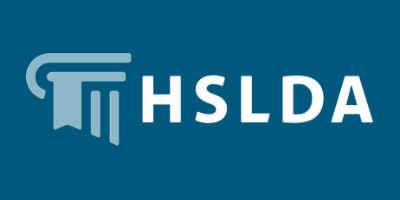Ohio Homeschool Information
—Homeschool In Ohio—
Homeschooling in Ohio




Find Out What the State Says About Home Education

Ohio Homeschool

🏀 5. Extracurricular Activities
Homeschooled students may participate in sports and extracurriculars in their resident district. They must meet the same eligibility and financial rules as public-school students
🎓 6. High School Diploma
-
Schools do not issue diplomas to homeschooled students.
-
Parents or guardians may issue their own diploma and any honors (seals, etc.)
-
For college or job applications, include the superintendent’s final-year acknowledgment with the diploma
🏛️ 7. Alternative Option: NCNP (“Option 2”)
An alternative is to form a nonchartered, nonpublic school (NCNP, formerly “‑08 school”):
-
Requires at least a bachelor’s degree or equivalent for instructors,
-
Must meet hour-based annual requirements (≈910–1 001 hrs),
-
Must teach additional subjects: health, fine arts, PE, first aid, etc.
Ohio K-12 Scholarship Programs

5. Homeschooling
-
Homeschools cannot directly receive EdChoice/Education Savings Accounts; however, families can enroll via private school homeschool programs, which are eligible for vouchers and tax credits
-
Additionally, homeschool families can claim up to:
-
$250 homeschool credit (nonrefundable),
-
$500–$1,000 for non-chartered private-school homeschoolers .
-
⚖️ 6. Legal & Operational Context
-
As of June 25, 2025, Ohio’s universal voucher system under challenge: a state court declared the program unconstitutional, citing violation of “thorough and efficient common school” requirement. The program remains operational pending appeal
-
It serves ~88,000+ students at a cost exceeding $475 million annually
-
Critics highlight rural access gaps (10 counties lack private providers) and funding pressure on public schools
✅ What Families Should Do Next
-
Determine eligibility:
-
Check if your child attends a designated school (Traditional EdChoice).
-
Review household income and federal poverty level (for Expansion/Universal).
-
-
Private School Access:
-
Use the state’s scholarship dashboard to find participating schools
-
Visit schools, verify participation, and apply through the school.
-
-
Homeschooling Route:
-
Enroll via an approved private school’s homeschool program.
-
Claim tax credits ($250–$1,000) and apply for donor-based scholarships.
-
-
Latest Legal Update:
-
The voucher program remains active but is under legal review. Stay informed about appeals.
-
Ohio K-12 School Choice & Scholarship Summary
Here’s a comprehensive overview of Ohio’s school-choice programs and funding options for private schools and homeschooling families:
🎓 1. EdChoice Scholarships (Vouchers)
Traditional EdChoice
-
Available to students assigned to designated low-performing (“EdChoice”) public schools. Applies to K–12
-
Amounts: $6,165 (K–8) and $8,407 (9–12) per year
-
Eligibility includes public/charter students, incoming K students, siblings of recipients, foster/homeless youth, etc. .
-
Priority application window: Feb 1–May 1; rolling through June or until funds run out
EdChoice Expansion (Income-Based)
-
Open to families based on income, no need to be tied to low-performing schools
-
Same scholarship amounts as above.
Universal Vouchers via HB 33 / House Bill 11
-
The 2023 state budget (HB 33) made EdChoice universal: open to all Ohio students, though funding scales by income
-
Sliding scale (K–8 and 9–12):
-
Up to 450% FPL: full award ($6,165/8,407)
-
450–500% FPL: ~$5,200/7,050, tapering down to ~$650/950 for >750% FPL
-
-
House Bill 11 (“Backpack Bill”) seeks to convert EdChoice into an Education Savings Account (ESA) & eliminate old vouchers by July 2024
2. Specialized Scholarship Programs
These use public funding for students with specific needs:
-
Autism Scholarship: Up to ~$32,445/year for K–12 students with autism
-
Jon Peterson Special Needs Scholarship: Up to ~$30,000/year based on IEP classification
-
Cleveland Scholarship: Available to any student in Cleveland City schools regardless of income/need
3. Tax-Credit Scholarships & Homeschool Credits
Donor Tax-Credit Scholarships
-
Individuals/donors get 100% state tax credits on donations (up to $750 single/$1,500 joint) to Scholarship Granting Organizations (SGOs). SGOs prioritize low-income recipients. Open to all families
Family Tax Credits
-
Homeschool Expense Credit: Nonrefundable $250 credit per home-educated child; enacted 2021
-
Non-Chartered Private School Credit: Up to $1,000–$1,500/child based on income
4. Education Savings Accounts (ESA) & Micro-Grants
-
ESA pilot via HB 11: families could be given funds through ESA to spend on public/private/charter/homeschool expenses .
-
A $500 micro-grant (ESA style) for low-income students to use on tutoring, day camps, materials, etc.
-
$250 tax credit for homeschool expenses, plus $500–$1,000 for non-chartered private school families .
Homeschool Resources for Ohio
Homeschooling has been part of education for centuries. In earlier times, it was simple to begin without worrying about rules or oversight. Today, however, homeschooling regulations vary by state, and some families may find it more challenging to get started. That’s why NFC Academy provides helpful state-specific pages outlining homeschool laws—to guide and support you as you begin your journey.
In areas with stricter requirements, having reliable support is important. Organizations like the Home School Legal Defense Association (HSLDA) offer valuable legal guidance and protection, helping families stay informed and confident. With the right tools and resources, homeschooling can be a rewarding and manageable experience, no matter where you live.
Information on this page is intended for informational purposes for homeschool families in the specific state. The information supplied does not, nor is it intended to, provide specific legal advice. For specific legal advice, we recommend you consult an attorney. Membership with Homeschool Legal Defense may provide legal information for your situation, but you may prefer a local private attorney to review your situation to provide specific legal advice.



